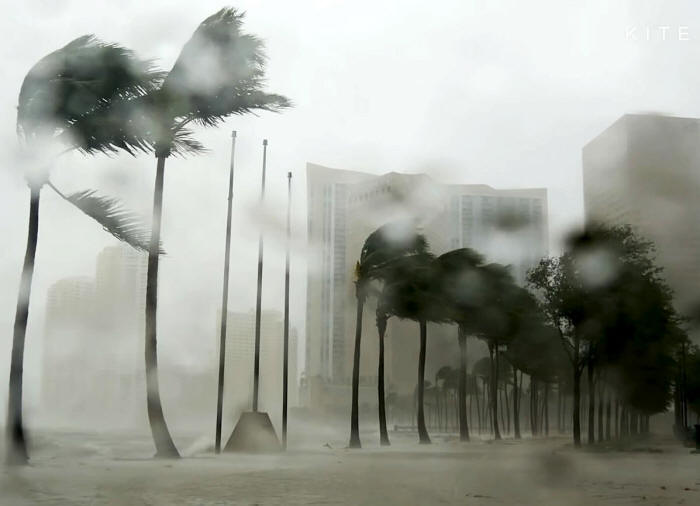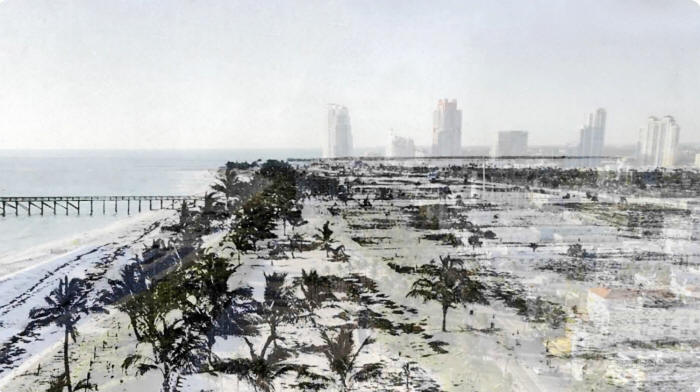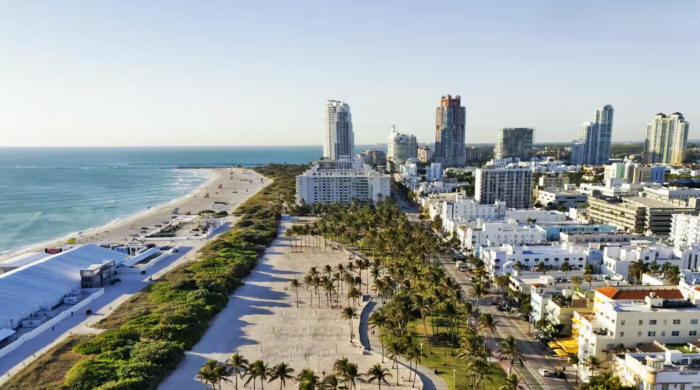|

by Michelle Arledge
May 13-14, 2025
from
KiteAndKeyMedia and
ClimateChangeDispatch Websites

Why we're safer from
climate disasters than ever before...
The (surprisingly) good news about Extreme Weather.
We're too worried about
extreme weather in wealthy nations...
and not
worried enough
in the developing world...
These days, stories of extreme weather are everywhere you
look.
But a crucial detail often goes overlooked:
We're safer from the consequences of that
weather than ever before...!
There was a time when extreme weather events that led to massive
fatalities were depressingly common in the U.S.
In the last 85 years, however, there have only been three such
events that took over 1,000 lives:
-
Hurricane Katrina
-
Hurricane
Maria
-
a 1980 heatwave
There's a reason for that.
The most important factor in determining a natural disaster's
destructiveness isn't its intensity, but how well people in its path
are protected.
And on that front, things have improved... a lot.
Better building codes have prevented about $1.6 billion in damage a
year since 2000.
Advances in hurricane forecasts and early-warning
systems have given people more time to prepare.
Having air conditioners in nearly 90% of American homes has severely
cut the risk of extreme heat.
And while you often hear that the economic damages from extreme
weather are growing, you don't often hear why...


A world with abundant air conditioning
changed Miami from a barren
landscape to a thriving city.
Source: Kite & Key Media
It's not that more property is being destroyed than in the past;
it's that the property being destroyed is more valuable than it used
to be.
In an apples-to-apples comparison,
the amount of economic damage
that disasters cause has decreased in recent years... by over 75%.
So, the good news:
We're safer than we think.
While we still need to be on guard for natural disasters and take
concerns about the climate seriously, the fears of an imminent
apocalypse are overblown.
But there's bad news too, which is that,
there are
a lot of people in the world that are still way more vulnerable to
extreme weather than Americans are.
One of the best predictors of how well your country will fare in a
disaster is how wealthy it is.
For a tangible example of this you
can look at Haiti and the Dominican Republic, two countries that
share the same island.
In 2004, the Dominican Republic was more than 250 percent wealthier
than Haiti.
When a hurricane hit the island that year, 19
Dominicans died.
The death toll in Haiti: over 3,000.
And even wealthier nations can feel the sting of this if they don't
take the necessary precautions.
A queasiness about developing new
energy sources in Europe, for instance, left much of the continent
dependent on Russian gas.
When Moscow cracked down on those exports
because of the war in Ukraine, it sent energy prices soaring in the
middle of winter - leading to an estimated 68,000 deaths from the cold.
But here's the most important thing to remember:
In most cases, we
can avoid tragedies on that scale.
With proactive planning,
continued technological innovation, and economic growth, society can
protect itself from the worst mother nature can throw at us.
The worst Miami can throw at us? That's a different question...
|




